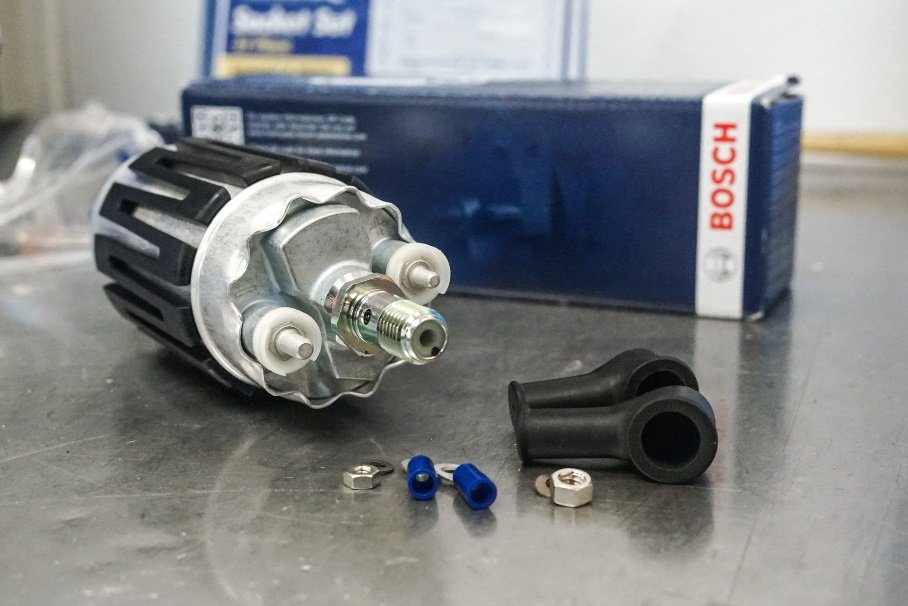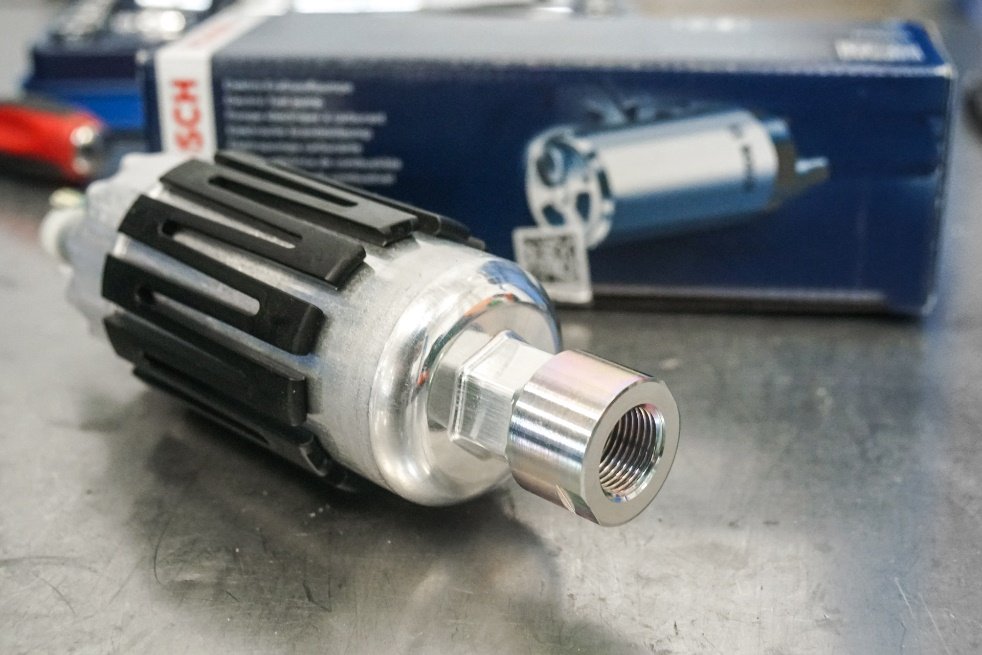When it comes to keeping your car running smoothly, having the best fuel pump is crucial. Electric fuel pumps have become a standard in modern vehicles, providing the necessary pressure for optimal engine performance.
Choosing the right electric fuel pump can be daunting with so many options available. This article aims to guide you through the process, highlighting the top models and what makes them stand out.

Understanding the importance of a reliable fuel pump and knowing what to look for can save you time and money in the long run. We’ll cover the key features to consider and provide recommendations based on performance and reliability.
Key Takeaways
- Understanding the role of electric fuel pumps in car performance
- Key features to look for in a reliable fuel pump
- Top recommendations for electric fuel pumps
- Tips for maintaining your car’s fuel pump
- How to choose the best fuel pump for your vehicle
Understanding Electric Fuel Pumps for Cars
Understanding the basics of electric fuel pumps can significantly enhance your car’s efficiency. Electric fuel pumps are a crucial component in modern vehicles, responsible for supplying fuel to the engine.
How Electric Fuel Pumps Work
Electric fuel pumps operate by using an electric motor to drive a pumping mechanism, which pressurizes the fuel system. This process involves drawing fuel from the tank and pushing it through the fuel lines to the engine.
The key components of an electric fuel pump include the motor, the pumping element, and the electrical connections. When you turn the ignition on, the pump is activated, creating the necessary pressure for the engine to run smoothly.
Benefits of Electric vs. Mechanical Fuel Pumps
Electric fuel pumps offer several advantages over their mechanical counterparts. Some of the key benefits include:
- Increased Reliability: Electric pumps are less prone to mechanical failure.
- Improved Performance: They provide a consistent fuel pressure, enhancing engine performance.
- Better Fuel Efficiency: Electric pumps can optimize fuel delivery, potentially improving fuel economy.
Overall, electric fuel pumps contribute to a more efficient and reliable fuel system, making them a preferred choice in modern automotive design.
Signs You Need to Replace Your Fuel Pump
When your vehicle’s fuel pump starts to fail, you’ll likely notice a few key symptoms that signal it’s time for a replacement. The fuel pump is responsible for supplying fuel to the engine, and its failure can lead to decreased performance, poor fuel efficiency, and potentially cause the engine to stall.
Common Symptoms of a Failing Fuel Pump
A failing fuel pump often exhibits specific symptoms. You might experience engine sputtering or loss of power while driving, especially when accelerating. Another common sign is a whining noise coming from the fuel tank area. If your car is hard to start or stalls frequently, it could be a sign that the fuel pump is not functioning correctly.
Diagnostic Steps to Confirm Fuel Pump Issues
To diagnose a failing fuel pump, start by checking the fuel pressure using a fuel pressure gauge. Listen for unusual noises coming from the fuel tank. You can also perform a voltage drop test to ensure the pump is receiving the correct voltage. If you’re still unsure, consult a professional mechanic for a more detailed diagnosis.
Replacing your fuel pump with a high-performance fuel pump can be a good opportunity to upgrade your vehicle’s fuel system, potentially improving its overall performance and efficiency.
How to Choose the Right Electric Fuel Pumps for Cars
The right electric fuel pump can significantly enhance your car’s efficiency and overall driving experience. With the variety of options available, it’s crucial to understand the key factors that influence the selection of an electric fuel pump for your vehicle.
When choosing an electric fuel pump, several critical factors come into play. You need to consider your car’s engine requirements, the pressure and flow rate of the pump, and whether an in-tank or external pump is more suitable.
Matching Fuel Pump to Engine Requirements
Your car’s engine requirements are a primary consideration when selecting an electric fuel pump. The pump must be compatible with your engine’s specifications to ensure optimal performance. Check your vehicle’s manual or consult with a mechanic to determine the correct specifications.
Pressure and Flow Rate Considerations
The pressure and flow rate of an electric fuel pump are critical to its performance. A pump with the wrong pressure can lead to poor engine performance or even damage. Ensure the pump you choose matches the manufacturer’s recommended pressure and flow rate.
In-Tank vs. External Pumps
Electric fuel pumps come in two main types: in-tank and external. In-tank pumps are submerged in the fuel tank and are generally quieter and more efficient. External pumps are located outside the tank and can be easier to install and replace. Consider your specific needs and preferences when deciding between the two.
| Feature | In-Tank Pumps | External Pumps |
|---|---|---|
| Noise Level | Quieter | Louder |
| Installation | More Complex | Easier |
| Efficiency | More Efficient | Less Efficient |
By considering these factors and understanding your car’s specific needs, you can choose the right electric fuel pump kit that enhances your vehicle’s performance and longevity.
Top Electric Fuel Pumps on the Market
With the myriad of electric fuel pumps available, choosing the best one for your vehicle can be a daunting task. The right fuel pump can significantly enhance your car’s performance, efficiency, and reliability. In this section, we’ll review some of the top electric fuel pumps on the market, focusing on high-performance models from renowned brands like Bosch, Walbro, Delphi, and AEM.
Bosch044 High Performance Fuel Pump
The Bosch044 is a high-performance fuel pump designed for high-demand applications. It’s known for its reliability and ability to support high horsepower engines.
Features and Specifications
- Flow Rate: Up to 255 liters per hour
- Pressure: Compatible with a wide range of fuel systems
- Compatibility: Suitable for various engine types, including turbocharged and supercharged engines
Ideal Applications
The Bosch044 is ideal for performance vehicles, racing cars, and any application where high fuel flow is required. It’s a popular choice among car enthusiasts looking to upgrade their fuel system.

Walbro255 LPH Fuel Pump
The Walbro255 LPH fuel pump is another high-performance option, known for its high flow rate and reliability. It’s designed to support engines with high fuel demands.
Features and Specifications
- Flow Rate: 255 liters per hour
- Pressure: Supports high-pressure fuel systems
- Compatibility: Suitable for a variety of engine configurations
Ideal Applications
This pump is ideal for high-performance vehicles, including those with forced induction. It’s a popular choice for aftermarket fuel system upgrades.
“The Walbro255 LPH fuel pump has been a game-changer for my racing team. Its reliability and performance have significantly improved our car’s efficiency.”
— Racing Team Manager
Delphi FE0161 Electric Fuel Pump
The Delphi FE0161 is an electric fuel pump known for its durability and efficiency. It’s designed to meet the demands of modern fuel-injected engines.
Features and Specifications
| Feature | Specification |
|---|---|
| Flow Rate | Up to 150 liters per hour |
| Pressure | Compatible with standard fuel systems |
| Compatibility | Suitable for most fuel-injected engines |
Ideal Applications
The Delphi FE0161 is suitable for a wide range of vehicles, from daily drivers to performance cars. Its reliability makes it a great choice for those looking for a hassle-free fuel pump upgrade.
AEM50-1000 High Flow In-Tank Fuel Pump
The AEM50-1000 is a high-flow in-tank fuel pump designed for high-performance applications. It’s known for its high flow rate and compatibility with high horsepower engines.
Features and Specifications
- Flow Rate: Up to 1000 liters per hour (when used with appropriate wiring and fuel system)
- Pressure: Supports high-pressure fuel systems
- Compatibility: Suitable for high-performance engines
Ideal Applications
This pump is ideal for high-performance and racing applications where high fuel flow is critical. It’s designed to be used in-tank, providing a quiet and efficient fuel supply.
Best Electric Fuel Pump Kits and Assemblies
For those looking for a comprehensive solution, electric fuel pump kits and assemblies are available. These kits often include the fuel pump, wiring, and sometimes even the fuel filter, making installation easier and more straightforward.
When choosing an electric fuel pump, it’s essential to consider your vehicle’s specific needs, including the engine type, horsepower, and fuel system configuration. By selecting the right pump, you can ensure your car runs efficiently and performs at its best.
Installation and Maintenance Guide
To get the most out of your electric fuel pump, follow a thorough installation and maintenance guide. Installing an electric fuel pump requires attention to detail and adherence to safety protocols to ensure optimal performance and longevity.
Tools and Materials Needed for Installation
Before starting the installation, gather the necessary tools and materials. You’ll need a socket set, pliers, a fuel pressure tester, and the specific fuel pump kit designed for your vehicle. Ensure the fuel pump is compatible with your vehicle’s make and model.
- Socket set
- Pliers
- Fuel pressure tester
- Fuel pump kit
Step-by-Step Installation Process
The installation process involves several key steps. First, disconnect the battery to prevent any accidental starts. Then, relieve the fuel system pressure by removing the fuel pump fuse and running the engine until it stalls. Next, disconnect the fuel lines and electrical connectors, and remove the old fuel pump. Install the new pump, reconnect the fuel lines and electrical connectors, and replace the fuel pump fuse.
Safety Precautions During Installation
Safety is paramount during the installation process. Always wear protective gear, including gloves and safety glasses. Ensure the work area is well-ventilated, and avoid smoking or open flames near the fuel system. Be cautious when handling fuel lines to prevent spills.
Maintenance Tips for Longevity
To extend the life of your electric fuel pump, regular maintenance is essential. Check the fuel filter regularly and replace it as needed. Monitor fuel pressure and listen for unusual noises from the pump. Keeping the fuel tank at least a quarter full can also help prevent premature wear.
Conclusion
Selecting the best electric fuel pump for your car is crucial for optimal performance and longevity. As discussed, understanding the signs of a failing fuel pump and knowing how to choose the right replacement are essential steps in maintaining your vehicle’s health.
When deciding on electric fuel pumps for cars, consider factors such as engine requirements, pressure, and flow rate. Top brands like Bosch, Walbro, Delphi, and AEM offer high-quality options. The Bosch044 and Walbro255 are notable for their high performance and reliability.
By investing in the best fuel pump for your car, you ensure a steady fuel supply, improved engine performance, and potentially better fuel efficiency. Always follow proper installation and maintenance guidelines to maximize the lifespan of your new fuel pump.
FAQ
What are the signs that my car’s fuel pump needs replacement?
Common signs include decreased engine performance, unusual noises from the fuel tank, difficulty starting the engine, and diagnostic trouble codes related to fuel pressure or flow.
How do I choose the right electric fuel pump for my car?
To choose the right electric fuel pump, consider your engine’s requirements, including the necessary pressure and flow rate. You should also decide between an in-tank or external pump based on your specific needs and vehicle configuration.
What is the difference between in-tank and external electric fuel pumps?
In-tank fuel pumps are installed inside the fuel tank, providing a cooler operating environment and reducing the risk of vapor lock. External pumps are mounted outside the tank, often easier to install and replace, but may be more prone to overheating.
How do I install a new electric fuel pump?
To install a new electric fuel pump, you’ll need to follow a step-by-step process that includes relieving fuel pressure, disconnecting the battery, removing the old pump, and installing the new one. Ensure you follow safety precautions and consult your vehicle’s repair manual.
What are some high-performance electric fuel pumps available on the market?
Some top models include the Bosch 044, Walbro 255 LPH, Delphi FE0161, and AEM 50-1000. These pumps offer high flow rates and pressures, making them suitable for high-performance and modified vehicles.
How do I maintain my electric fuel pump to ensure its longevity?
Regular maintenance includes checking fuel filter condition, ensuring the fuel tank is not allowed to run too low, and avoiding extreme temperatures. Following these tips can help prolong the life of your electric fuel pump.
Can I use a high-performance electric fuel pump in my standard vehicle?
While it’s technically possible, using a high-performance fuel pump in a standard vehicle may not be necessary and could potentially cause issues if not properly matched to the engine’s requirements. It’s essential to consult with a professional to determine the best pump for your specific needs.
What are the benefits of electric fuel pumps over mechanical ones?
Electric fuel pumps offer several advantages, including improved reliability, increased efficiency, and better performance. They are also generally quieter and can provide a more consistent fuel supply under various operating conditions.



